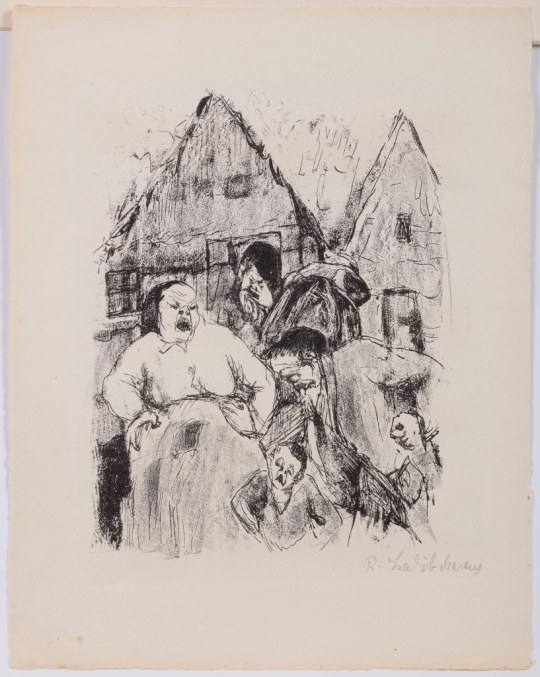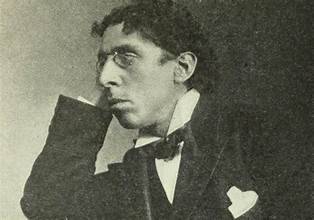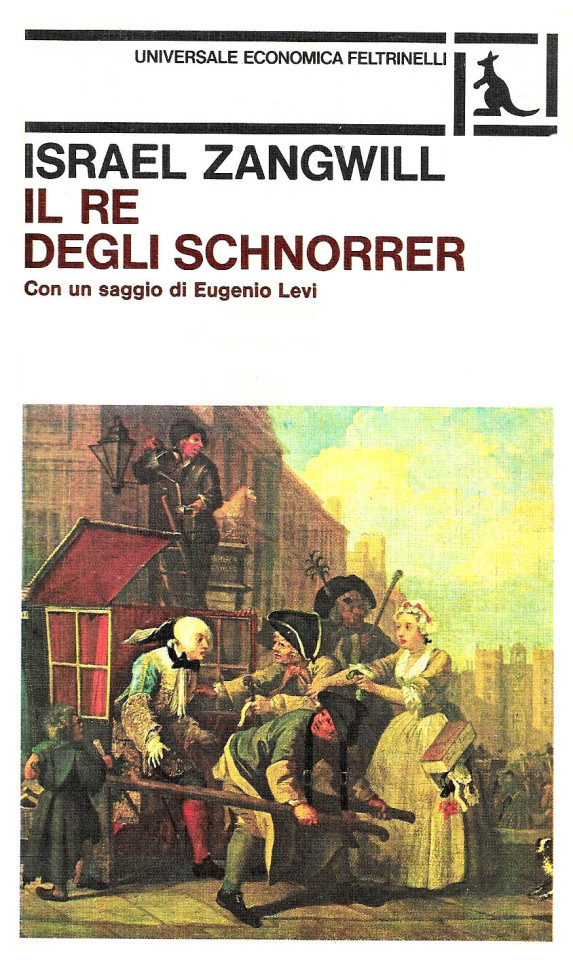#israel zangwill
Explore tagged Tumblr posts
Text
Israel Zangwill - [Um dia, estando entre nós dois o Atlântico]
"[Um dia, estando entre nós dois o Atlântico]", um poema de Israel Zangwill
Um dia, estando entre nós dois o Atlântico,senti a tua mão na minha;Agora, tendo a tua mão na minha,sinto entre nós dois o Atlântico. Trad.: Cecília Meireles REPUBLICAÇÃO: poema publicado na página originalmente em 27/02/2019 Mais do que uma leitura, uma experiência. Clique, compre e contribua para manter a poesia viva em nosso blog

View On WordPress
0 notes
Photo

(via Se questo è un uomo Ver. 2.0)
Quando ero bambina leggevo di ciò che era accaduto nei campi di concentramento in Germania e in Polonia.
#bambini#bambini palestinesi#bansky#campi di concentramento#diamanta#diversamente intelligente#droni#ebrei#palestinesi#esercito israeliano#gaza#massacro#israel zangwil#mondo#lalestina#se questo è un uomo#se questo è un uomo ver 2.0#sionisti#territori#vita#genocidio#strage
0 notes
Text
Sabbatean-Frankism as the Paradigm of the Modern Left

February 19, 2019
[Introduction] What do all these influential intellectuals all have in common?
1.Communism (Marx)Sexual
2. depravity (Freud)
3. Corporate Leftism (Bernays)
4. Multiculturalism (Horace Kallen)
5. Deconstructivism/Critical Theory (Walter Benjamin)
6. Frankfurt School (Adorno)
7. Radical jurisprudence (Brandeis, Frankfurter, and Cardozo)
8. Large-scale, non-selective immigration (Israel Zangwill, Emma Lazarus)
They are all linked to Sabbatean-Frankism, a distinct quasi-Satanic schism within Jewry. The extraordinary prevalence of Sabbatean-Frankist influence among top Jewish intellectuals from 1850-1950 makes it statistically impossible to deny its role because of the impossible coincidences.
The Sabbatean-Frankists sought to invert traditional Jewish-Christian values, including the 10 Commandments, restrictions on debauched sexuality, man’s dominion over the environment, etc. Further, given Sabbatean-Frankism’s apocalyptic nature, the modern Left is riven with irrational destructive impulses.
This general thesis has been explored by historians Paul Johnson and Gershom Scholem, but never in such detail. There are several implications of this thesis:
The failures of the contemporary Left do not represent “good faith” secular humanist efforts gone wrong. It is very possible that Freud, Marx, and other Sabbatean-Frankist intellectuals purpose-built their ideas to destroy the West.The US Supreme Court was heavily influenced by Sabbatean-Frankists. Their impact help cause a revolution via court fiat in the 50s-70s that undemocratically imposed decadent/anti-Judeo-Christian (i.e. Frankist) values on the country.Since the Left is fundamentally a quasi-Satanic movement devoted to destroying traditional Judeo-Christian civilization, it is a natural ally with like-minded Islam, despite superficial differences (feminism, gay rights). Islam and the Left will seamlessly cooperate to destroy the West as they cooperated to topple the Shah in the Iranian Revolution.
Any civilization will eventually grow contemptuous of its stern founding virtues. Sabbatean-Frankism’s resonance is part of a cycle where civilizations grow complacent and ultimately self-destructive.
I'm still learning about all of this stuff, myself, but it IS based on historical evidence. All I know for a fact, right now, are two things:
1. OUR American media is nearly completely owned by Israeli citizens aka wealthy Jewish families and/or corporations also owned by wealthy Jewish families, as is all of Hollywood.
2. THEY are the ones pushing Trump while doing everything possible to dismiss another Biden presidency, which would repeat the history of Hitler. He lost power, then came back, enacting a Holocaust.
Both of these are undeniable facts. MSM wants the United States to burn.
#Sabbatean-Frankism as the Paradigm of the Modern Left#Communism (Marx)Sexual#depravity (Freud)#Corporate Leftism (Bernays)#Multiculturalism (Horace Kallen)#Deconstructivism/Critical Theory (Walter Benjamin)#Frankfurt School (Adorno)#Radical jurisprudence (Brandeis#Frankfurter#and Cardozo)#Large-scale#non-selective immigration (Israel Zangwill#Emma Lazarus)#Biden#Trump#MSM wants the United States to burn.
0 notes
Text
A man likes his wife to be just clever enough to comprehend his cleverneths, and just sthtupid enough to admire it.
Daffy to Daphne Duck
0 notes
Text
I ricchi erano molto ricchi, i poveri molto poveri, e così ciascuno conosceva la propria posizione (Israel Zangwill, Il re degli schnorrer).
8 notes
·
View notes
Video
youtube
https://www.youtube.com/watch?v=i2M4K420RkM
There’s a particular generation of Conservative Jews (younger Boomers and older Gen X, mostly) who will give you a tremendous side-eye if you talk about music in a Reform synagogue. That same generation of Reform Jews will talk about it with a wry “remember the Old Days™” smile.
This is the kind of music they’re talking about. Believe it or not, this is a version of the Aleinu! It used to be highly popular in some Reform congregations back in like the 1940s even through the 1960s, and a lot of older folks grew up singing this out of the Union Hymnal. The text is actually British, the poet being Israel Zangwill of London, and I’ve actually heard this sung on Rosh Hashana in the UK, albeit to a different tune.
This tune, by Abraham Wolf Binder, is something that would have been popular back in the days when Reform congregations had organs and sang out of hymnals. It’s nothing like what a Reform congregation sounds like now! But it does remind me of one of the things that I love about the Reform movement. That is: the Reform movement is very willing not just to experiment with new forms and new sounds of prayer, but to jump in with both feet and really experience whatever it is they’re doing. Whether it’s a good idea or a bad one, Reform will cannonball in, yell “Cowabunga” and give it a good ol’ college try. They keep what works, eventually discard what doesn’t work when an alternative comes along, and just sort of Try Stuff.
It doesn’t always work, but it’s never boring!
3 notes
·
View notes
Text
The past is for inspiration, not imitation, for continuation, not repetition.
- Israel Zangwill
#scriptwriting#screenwriting#amwriting#write#script#writingquotes#writingadvice#writinginspiration#writing quotes#writing advice#writing inspiration
8 notes
·
View notes
Text

Rahel Szalit-Marcus, "The Street Sneezes," from "Motl, Peysi the Cantor’s Son," 1922.
(Lithograph; 13 x 11-1/2 in.[33 x 29.2 cm.])
Before 1924, Szalit-Marcus completed illustrations to works by Sholem Aleichem, Martin Buber, Charles Dickens, Fyodor Dostoyevsky, Heinrich Heine, Mendele Moykher Sforim, and Israel Zangwill.
2 notes
·
View notes
Text
[Israel] Zangwill’s more public stance can be seen in the publication of his book, The Voice of Jerusalem, in 1920. There, he advocated an “Arab exodus” that would be based on “race redistribution” or a “trek like that of the Boers from Cape Colony,” which he advocated as “literally the only ‘way out’ of the difficulty of creating a Jewish State in Palestine.”
—Nur Masalha, from Expulsion of the Palestinians: The Concept of "Transfer" in Zionist Political Thought, 1882-1948
2 notes
·
View notes
Text
I’m always reminded of the xkcd comic whenever people complain about “kids these days” or “the older days were better”
The art of letter-writing is fast dying out. When a letter cost nine pence, it seemed but fair to try to make it worth nine pence…Now, however, we think we are too busy for such old-fashioned correspondence. We fire off a multitude of rapid and short notes, instead of sitting down to have a good talk over a real sheet of paper. The Sunday Magazine, 1871
It is, unfortunately, one of the chief characteristics of modern business to be always in a hurry. In olden times it was different. The Medical Record, 1884
With the advent of cheap newspapers and superior means of locomotion…The dreamy quiet old days are over…For men now live think and work at express speed. They have their Mercury or Post laid on their breakfast table in the early morning, and if they are too hurried to snatch from it the news during that meal, they carry it off, to be sulkily read as they travel…leaving them no time to talk with the friend who may share the compartment with them…The hurry and bustle of modern life…lacks the quiet and repose of the period when our forefathers, the day's work done, took their ease… William Smith, Morley: Ancient and Modern, 1886
Conversation is said to be a lost art…Good talk presupposes leisure, both for preparation and enjoyment. The age of leisure is dead, and the art of conversation is dying. Frank Leslie's popular Monthly, Volume 29, 1890
Intellectual laziness and the hurry of the age have produced a craving for literary nips. The torpid brain…has grown too weak for sustained thought. There never was an age in which so many people were able to write badly. Israel Zangwill, The Bachelors' Club, 1891
The art of pure line engraving is dying out. We live at too fast a rate to allow for the preparation of such plates as our fathers appreciated. If a picture catches the public fancy, the public must have an etched or a photogravured copy of it within a month or two of its appearance, the days when engravers were wont to spend two or three years over a single plate are for ever gone. Journal of the Institute of Jamaica, Volume 1, 1892
So much is exhibited to the eye that nothing is left to the imagination. It sometimes seems almost possible that the modern world might be choked by its own riches, and human faculty dwindle away amid the million inventions that have been introduced to render its exercise unnecessary. The articles in the Quarterlies extend to thirty or more pages, but thirty pages is now too much so we witness a further condensing process and, we have the Fortnightly and the Contemporary which reduce thirty pages to fifteen pages so that you may read a larger number of articles in a shorter time and in a shorter form. As if this last condensing process were not enough the condensed articles of these periodicals are further condensed by the daily papers, which will give you a summary of the summary of all that has been written about everything. Those who are dipping into so many subjects and gathering information in a summary and superficial form lose the habit of settling down to great works. Ephemeral literature is driving out the great classics of the present and the past…hurried reading can never be good reading. G. J. Goschen, First Annual Address to the Students, Toynbee Hall. London, 1894
The existence of mental and nervous degeneration among a growing class of people, especially in large cities, is an obvious phenomenon…the mania for stimulants…diseases of the mind are almost as numerous as the diseases of the body…This intellectual condition is characterized by a brain incapable of normal working…in a large measure due to the hurry and excitement of modern life, with its facilities for rapid locomotion and almost instantaneous communication between remote points of the globe… The Churchman, Volume 71, 1895
If we teach the children how to play and encourage them in their sports…instead of shutting them in badly ventilated schoolrooms, the next generation will be more joyous and will be healthier than the present one. Public Opinion: A Comprehensive Summary of the Press Throughout the World, Volume 18, 1895
The cause of the…increase in nervous disease is increased demand made by the conditions of modern life upon the brain. Everything is done in a hurry. We talk across a continent, telegraph across an ocean, take a trip to Chicago for an hour's talk…We take even our pleasures sadly and make a task of our play…what wonder if the pressure is almost more than our nerves can bear. G. Shrady (from P.C. Knapp) "Are nervous diseases increasing?" Medical Record, 1896
The managers of sensational newspapers…do not try to educate their readers and make them better, but tend to create perverted tastes and develop vicious tendencies. The owners of these papers seem to have but one purpose, and that is to increase their circulation. Medical Brief, Volume 26, 1898
To take sufficient time for our meals seems frequently impossible on account of the demands on our time made by our business…We act on the apparent belief that all of our business is so pressing that we must jump on the quickest car home, eat our dinner in the most hurried way, make the closest connection for a car returning… Louis John Rettger. Studies in Advanced Physiology, 1898
In these days of increasing rapid artificial locomotion, may I be permitted to say a word in favour of a very worthy and valuable old friend of mine, Mr. Long Walk?I am afraid that this good gentleman is in danger of getting neglected, if not forgotten. We live in days of water trips and land trips, excursions by sea, road and rail-bicycles and tricycles, tram cars and motor cars…but in my humble opinion, good honest walking exercise for health beats all other kinds of locomotion into a cocked hat. T. Thatcher, "A plea for a long walk", The Publishers Circular, 1902
The art of conversation is almost a lost one. People talk as they ride bicycles–at a rush–without pausing to consider their surroundings…what has been generally understood as cultured society is rapidly deteriorating into baseness and voluntary ignorance. The profession of letters is so little understood, and so far from being seriously appreciated, that…Newspapers are full, not of thoughtful honestly expressed public opinion on the affairs of the nation, but of vapid personalities interesting to none save gossips and busy bodies. Marie Corelli, Free opinions, freely expressed, 1905
There is a great tendency among the children of today to rebel against restraint, not only that placed upon them by the will of the parent. But against any restraint or limitation of what they consider their rights…this fact has filled well minded people with great apprehensions for the future. Rev. Henry Hussmann, The authority of parents, 1906
Our modern family gathering, silent around the fire, each individual with his head buried in his favourite magazine, is the somewhat natural outcome of the banishment of colloquy from the school… The Journal of Education, Volume 29, 1907
Plays in theatres at the present time present spectacles and deal openly with situations which no person would have dared to mention in general society forty years ago…The current representations of nude men and women in the daily journals and the illustrated magazines would have excluded such periodicals from all respectable families two decades ago…Those who have been divorced…forty and fifty years ago lost at once and irrevocably their standing in society, while to-day they continue in all their social relationships, hardly changed… Editorial, The Watchman, Boston, 1908
We write millions more letters than did our grandfathers, but the increase in volume has brought with it an automatic artificial machine-like ring…an examination of a file of old letters reveals not only a remarkable grasp of details. But a fitness and courtliness too often totally lacking in the mechanical curt cut and dried letters of to-day. Forrest Crissey, Handbook of Modern Business Correspondence, 1908
A hundred years ago it took so long and cost so much to send a letter that it seemed worth while to put some time and thought into writing it. Now the quickness and the cheapness of the post seem to justify the feeling that a brief letter to-day may be followed by another next week–a "line" now by another to-morrow. Percy Holmes Boynton, Principles of Composition, 1915
[from the Alt Text] Unfortunately, the notion of marriage which prevails…at the present time…regards the institution as simply a convenient arrangement or formal contract…This disregard of the sanctity of marriage and contempt for its restrictions is one of the most alarming tendencies of the present age. John Harvey Kellogg, Ladies' guide in health and disease, 1883
"gen alpha is so cooked they don't use cds" is the new "gen z don't know what a vhs is" which is the new "millennials don't know what a rotary phone is" which is the new "gen x don't listen to the radio enough fuck television" which is the new "boomers listen to the radio too much read a book" which is the new "generation ???? read too much go work in the factories" which is the new "generation ???????? work in the factories too much go work in the fields" which is the new "kids should stop working in the fields and start hunting their food" which is the new "grug baby stupid. grug baby eat rocks. grug throw baby away"
38K notes
·
View notes
Text
Faits-divers Kassovitz enfonce le clou : “les Français de souche sont des fins de race”.
FREE PALESTINE !

Précédemment : “Il n’y a plus de Français de souche. J’espère qu’on va continuer à se mélanger.” : faits-divers Kassovitz se réjouit du génocide des Blancs
Mathieu Kassovitz a tenu à nuancer son propos au sujet des Français de souche qui n’existeraient pas.
Si, ils existent, convient le cinéaste juif, avant de les qualifier de “fins de race” au terme d’un prêche appelant à éradiquer la race blanche par un intense mélange racial.


Fin de race (selon Mathieu Kassovitz)
Assurément, Kassovitz exprime franchement sa haine génocidaire des Blancs, mais il n’est pas le seul dans ce cas.
Ce serait en effet une erreur que de croire à l’originalité de Mathieu Kassovitz sur ce sujet. Cette conviction est fermement enracinée chez les juifs.

« Cela va faire parler, mais l’objectif, c’est relever le défi du métissage ; défi du métissage que nous adresse le XXIe siècle. Le défi du métissage, la France l’a toujours connu et en relevant le défi du métissage, la France est fidèle à son histoire. D’ailleurs, c’est la consanguinité qui a toujours provoqué la fin des civilisations et des sociétés. Disons les choses comme elles sont, jamais le métissage. La France a toujours été, au cours des siècles, métissée. La France a métissé les cultures, les idées, les histoires. »
Nicolas Sarközy, discours prononcé à l’École polytechnique de Palaiseau, 17 décembre 2008

« L’Amérique est le Creuset de Dieu (Yahweh), le grand Melting-Pot où toutes les races de l’Europe se fondent et se reforment. »
Israel Zangwill, The Melting Pot, 1908, Acte I, scène 1

“Les distinctions qui séparent les classes sociales sont fausses ; en dernière analyse, elles reposent sur la force. Je suis convaincu que tous les hommes naissent égaux et que les différences entre eux sont purement artificielles.”
Albert Einstein, The World As I See It, 1934

” Je pense qu’il y a une résurgence de l’antisémitisme parce qu’à l’heure actuelle, l’Europe n’a pas encore appris à être multiculturelle. Et je pense que nous allons participer aux affres de cette transformation, qui doit avoir lieu. L’Europe ne sera plus la société monolithique qu’elle était au siècle dernier. Les Juifs seront au centre de cette évolution. Il s��agit d’une transformation énorme pour l’Europe. Elle est en train de passer à un mode multiculturel et les Juifs seront mal vus en raison de notre rôle de premier plan. “
Barbara Lerner Spectre, IBA News, 2010

“L’objectif d’abolir la race blanche est à première vue si désirable que certains ont du mal à croire qu’il puisse rencontrer une opposition autre que celle des suprémacistes blancs convaincus.”
Noel Ignatiev, Harvard Magazine, septembre-octobre 2002, cité dans l’article « When Does the Call for Diversity Become a Call to Replace Whites?

“Nous souhaitons le développement des réseaux dans le tissu planétaire, nous appelons au métissage, dans les conditions où il est symbiose et non prise de substance d’une civilisation par une autre.”
Edgar Nahoun dit “Morin”

« La France, écrit-il, devrait poursuivre sa voie singulière, celle du métissage des cultures plutôt que de l’exclusion de l’autre. »
Guy Sorman, Le Monde est ma tribu, Fayard, 1997, p. 399

« La race blanche est le cancer de l’histoire humaine, c’est elle et elle seule – ses idéologies et ses inventions – qui éradique les civilisations autonomes partout où elle se répand, qui a bouleversé l’équilibre écologique de la planète, qui menace aujourd’hui l’existence même de la vie. »
Susan Sontag, Partisan Review, Winter 1967, p. 57, cité dans The Occidental Observer

“Le multiculturalisme n’est pas seulement une réalité, c’est une nécessité. L’avenir de l’Europe est dans sa diversité, dans le mélange des peuples et des cultures. S’y opposer, c’est s’opposer au progrès.
Daniel Cohn-Bendit, Interview dans Der Spiegel, 12 mai 1998, cité dans Multiculturalism and the Politics of Identity, édité par Paul Kelly, 2002, p. 112.

« La grande expérience des démocraties diverses nous oblige à accueillir l’immigration et les mélanges culturels, non pas comme des menaces, mais comme des opportunités de construire des sociétés plus fortes et plus résistantes ».
Yascha Mounk, La grande expérience : Pourquoi les démocraties diverses s’effondrent et comment elles peuvent perdurer, Penguin Press, 2022, p. 231.
Chacun peut imaginer ce qui se produirait si, sur LCI, un cinéaste blanc qualifiait les juifs de “fins de race” dont la disparition par le métissage était aussi inéluctable que souhaitable.
L’auteur de tels propos n’aurait pas face à lui des journalistes qui acquiescent respectueusement, mais de vives récriminations suivies d’une nuée de plaintes pour “antisémitisme”.
Au surplus, la carrière dudit cinéaste serait terminée.
Si Kassovitz semble intarissable sur la question de la disparition des Blancs, on l’entend trop peu à propos de l’état d’Israël, de ses frontières farouchement gardées par la junte de Tel Aviv, de ses lois autorisant un juif du Bronx ou de Buenos Aires de s’établir en Palestine tandis que d’autres lois interdisent aux indigènes de sortir de leurs ghettos ethniques.
Logiquement, Kassovitz devrait souhaiter que le régime israélien soit remplacé par une démocratie multiraciale, égalitaire.
N’est-ce pas ?
youtube
Démocratie Participative

1 note
·
View note
Photo

Screener Squad: Brothers BROTHERS MOVIE REVIEW Israel Zangwill once said “It takes two men to make one brother”. Step aside Gyllenhaal and Maguire. Retire and move on Devito and Schwarzenegger. This time around the actors playing siblings are Josh Brolin and Peter Dinklage in a film directed by Max Barbakow and written by Etan Cohen and Macon Blair, Brothers. As children, twin brothers Moke and Jady watched their mother put pedal to the metal and speed out of their lives followed by a dozen cop cars blaring their sirens and flashing their colours. The two grew up looking out for each other as… Read More »Screener Squad: Brothers read more on One of Us
#Amazon Prime Video#brothers#Josh Brolin#movie review#peter dinklage#podcast#Screener Squad#Amazon Prime#film#Movie Review
0 notes
Text
Sätze, die mich zum Nachdenken bringen
Die Idee des Schmelztiegels war nicht in Amerika entstanden, sondern wurde in England von dem Essayisten und Dramatiker Israel Zangwil entworfen, der von den gleichen intellektuellen Voraussetzungen wie Theodor Herzl ausging, als dieser seine Version des Zionismus entwarf. Als Herzl 1896 seinen Judenstaat schrieb, hatte er die Juden vor die Wahl zwischen Assimilation oder einer nationalen Existenz in Palästina gestellt: die Juden sollten sich reorganisieren, sich "normalisieren" und ebenso werden "wie jeder andere".
1914 übernahm Zangwil diese Ansicht in einem Nachwort zu seinem Drama "Der Schmelztiegel", das sechs Jahre zuvor uraufgeführt worden war. Hauptinhalt des Stückes war Zangwils Plädoyer für die Mischehe zwischen Juden und Christen als eine Möglichkeit, selbst die größten Unterschiede zwischen Amerikanern zu beseitigen. Am Ende des Stückes sagt der jüdische Held zu seiner christlichen Frau, dass er die Neue Welt großartiger als sogar Rom oder Jerusalem finde, denn Amerika "ist der Ort, zu dem alle kommen, um zu arbeiten und sich zu freuen".
Zitat aus: Arthur Hertzberg, Shalom Amerika! Die Geschichte der Juden in der Neuen Welt - Siehe dazu auch diverse Boards der Lernumgebung des Zug der Zeit mit Anmerkungen und Bild-Dateien zum Reformjudentum, das sich in der neuen Bauweise der Tempel und Synagogen - am mehrheitlich protestantischen Amerika zu Beginn des 20. Jahrhunderts orientierte.
0 notes
Text

Alredered Remembers Israel Zangwill, English Jewish author, who wrote The Jewish Race (1911) and Children of the Ghetto, on his birthday.
"The Past: Our cradle, not our prison; there is danger as well as appeal in its glamour. The past is for inspiration, not imitation, for continuation, not repetition."
-Israel Zangwill
0 notes
Text

Grobstock dovette fare un gran sforzo per non lasciar trapelare la sua meraviglia e la sua stizza (Israel Zangwill, Il re degli Schnorrer, Milano, Feltrinelli, 1979).
2 notes
·
View notes
Photo

Dreamers of the Ghetto. Israel Zangwill. New York and London: Harper & Brothers Publishers, 1898. First edition, Harper issue.
Stories, some rather long, of Jewish dreamers, some of them famous (Spinoza etc.), others generally unknown. One of the longer stories, "The Master of the Name," concerns the Baal Shem Tov, a legendary wonder-working Rabbi of the eighteenth century, and recounts some of his supernatural feats
25 notes
·
View notes